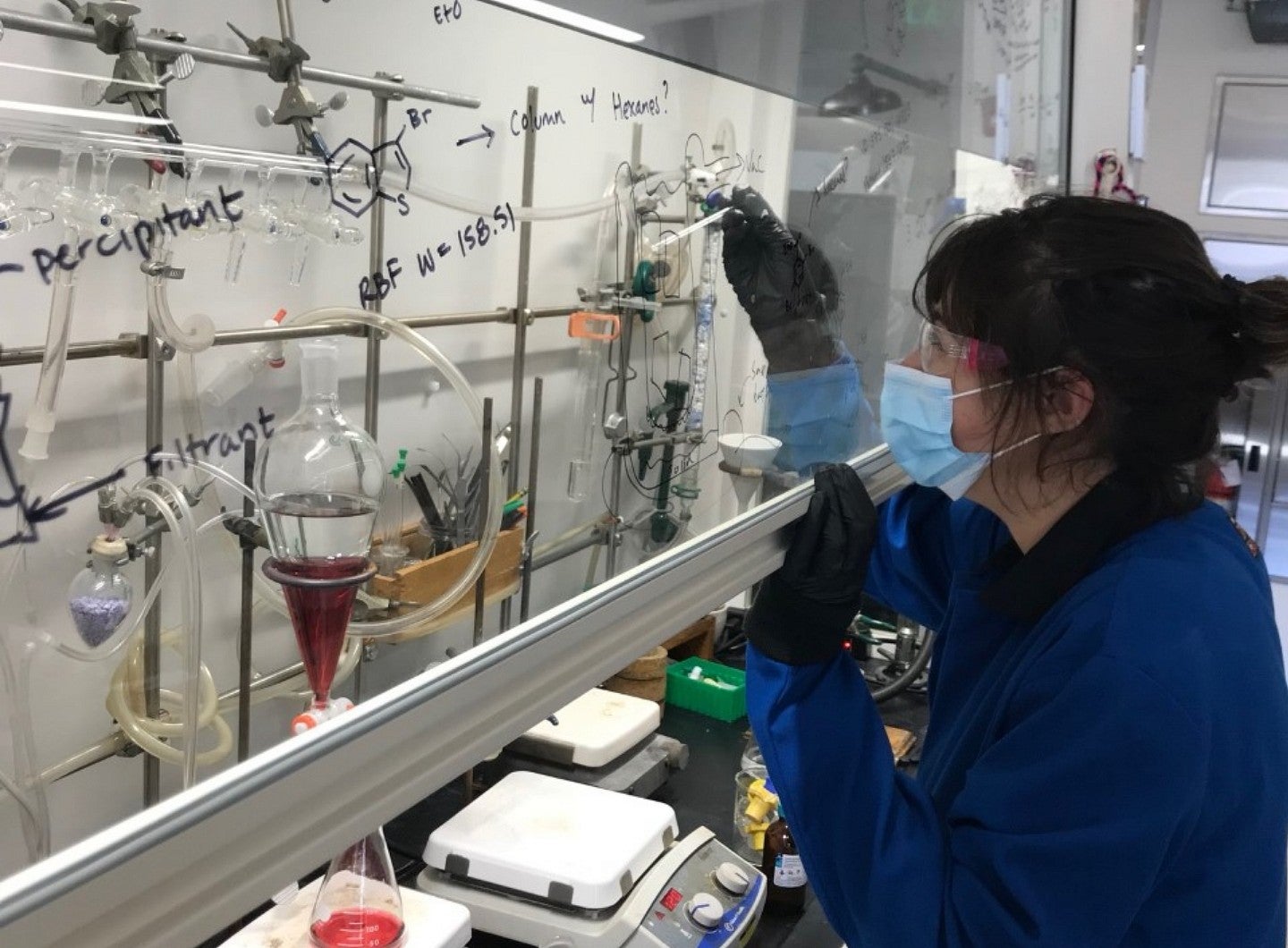PI: Vickie DeRose of Chemistry and Biochemistry
Graduate students in STEM conduct groundbreaking research, mentor undergraduates in labs and classes, and create a network of connections that feed back into the university. They are the future of science and technology, so offering new methods of graduate training and practices that reflect the constant flux in the field of STEM is critical for their success. Professor of chemistry and biochemistry Victoria DeRose and her co-PIs Darren Johnson and Michael Pluth set out to create such a program that uses new and innovative ways of training graduate students for their future careers in teaching and research.
With a five-year, $3 million grant, DeRose and her team, which also includes colleagues from the department of biology and the Knight Campus for Accelerating Scientific Impact, will support up to 40 PhD students in a range of STEM fields with one-year fellowships for study and experiential learning. They also plan to share successful elements of the program with the broader academic community to the model of this training program can be used in other areas of research.
STEM graduates find careers in various types of positions, most commonly in industry, non-profit organizations, government, innovation, and academia. The goal of the program is to prepare students for all types of workplaces and for close collaboration with scientists, engineers, industrial scientists, and entrepreneurs.
The cohort-style group will collaborate on molecular-level questions in complex environments. Members work with living cells and environmental systems that are related to agriculture, technology, and human health. In addition to research, participants will also present their ideas to other professionals in the field and learn to navigate pathways to success. Key elements of the innovative program include market-aligned research, team-led projects, and inclusive practices that support a diverse community.
“We want to prepare leaders who can bring great ideas into different areas,” DeRose said. “In addition to technical expertise, common elements that support this goal include working in an inclusive community that supports members from diverse backgrounds, being able to effectively communicate with different stakeholders, being imaginative and agile with projects, and being able to address complex problems.”
The team is also focusing on creating new research collaborations and strong partnerships within the community, along with other aspects of the program that can continue beyond the five-year grant. For instance, a Lens of the Market professional development program is now embedded within the training program, as well as in the new Molecular Probes and Sensors Track in the Knight Campus Graduate Internship Program This class and workshop series provides training to students about how to view fundamental science through a lens of market and commercial needs. These endeavors will foster more opportunities for current and future classes of STEM students.

